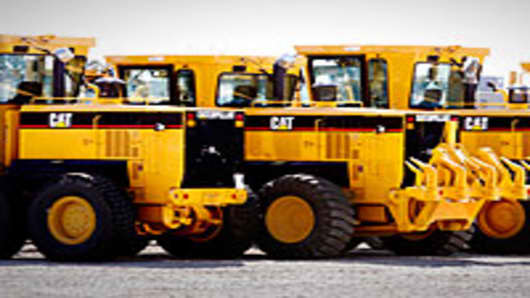It may have a been a rollercoaster week for the U.S. stock market, but to the CEO of Caterpillar it's "steady as she goes and the wind is blowing fairly well at our backs."
Doug Oberhelman told CNBC Friday he's optimistic based on the heavy machinery company's day-to-day sales, and discussions with customers and distributors around the world.
The company's also hiring.
Caterpillar has hired 11,000 people since 2010, 300 in just the first 10 days of August, Oberhelman said.
"Every day we’re hiring people because our business is picking up," he said. "Our export business is strong. In the U.S., as weak as it is, we’ve seen such an inventory depletion [that] we’ve seen some buildback. It's from low levels, but any buildback flows right through to our factories."
Oberhelman is still worried about the macro economy. With 80 percent to 90 percent of Caterpillar's machinery exported, Oberhelman said if President Barack Obama is serious about job creation, he should start with getting free-trade agreements signed with Panama, Colombia, and South Korea.


